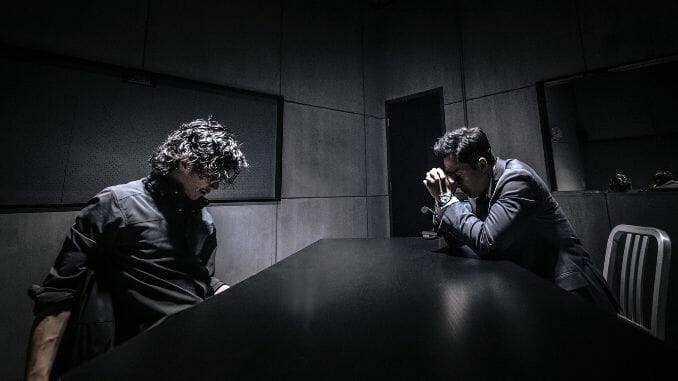Donnie Yen’s Generic Cop Saga Fails to Ignite a Raging Fire

Donnie Yen can defy gravity, can make us delight in his near-60-year-old body performing incredible leaps and kicks, can sell copious amounts of cheese with a silly grin or a hard stare. But he’s not a miracle worker. When he’s given material like Raging Fire, a run-of-the-mill cop-and-robber action/drama that’s as generic as its title, he’s just as susceptible to disappearing beneath mediocrity as any other performer. Despite a few moments of heightened bliss that remind us what kind of talent it has in front of the camera (and the operatic possibilities of Hong Kong action), Raging Fire’s dull discussion of policing never lights a fire.
The last film written and directed by Benny Chan, who tragically died of cancer between production and post-production, Raging Fire’s plot is pretty simple. It’s another case of dueling morals, this time between Yen’s hardline inspector Cheung Sung-pong and his ex-protégé Yau Kong-ngo (Nicholas Tse), who turned criminal after a stint in prison when his police brutality turned lethal. Brotherhood, lines in the sand and collateral damage: Those constants of police stories (not limited to that of New Police Story, perhaps Chan’s best-known work) all turn up here as Cheung investigates a deadly heist undertaken by someone that had to have known insider information.
The two archetypes—Tse’s villain unable to cut loose even with dual butterfly knives; Yen’s hero so thin as to almost disappear behind his extendable baton—clash in a few different setpieces as the film slowly rolls out its backstory through long flashbacks. Neither present nor past provide much drama for the cast to dig into, but the film still has a few inspired moments of action that incorporate over-the-top acts of physical prowess into otherwise standard car chases or fistfights. When Yen leaps from his speeding van, grabs a child from its path, then leaps backwards atop the crashing car—well, it’s just as thrilling as the final confrontation between its good cop and bad ex-cop. The problem is that, of the film’s two hours, those are some of the only entertaining moments.
The rest is a slog of repetitive and trope-ridden scenes in courtrooms and police stations (and, once, in a kind of police courtroom), where actors sit around and talk about facile ideas everyone in the world should be tired of. Raging Fire is less interested in moral shades of grey than it is in pretending that the omnipresent black—Should cops beat the hell out of people to get answers? Is it bad for the police to be paid off?—is even close to the white. You just want everyone to shut up and get into a car chase or start blasting with a shotgun, but even when the film acquiesces, those spurts of energy are less high-octane than regular unleaded. While the stereotypical morality play and stock characters are one thing, the lack of spectacle holding it all together undermines whatever expectations we might have.
-

-

-

-

-

-

-

-

-

-

-

-

-

-

-

-

-

-

-

-

-

-

-

-

-

-

-

-

-

-

-

-

-

-

-

-

-

-

-

-








































